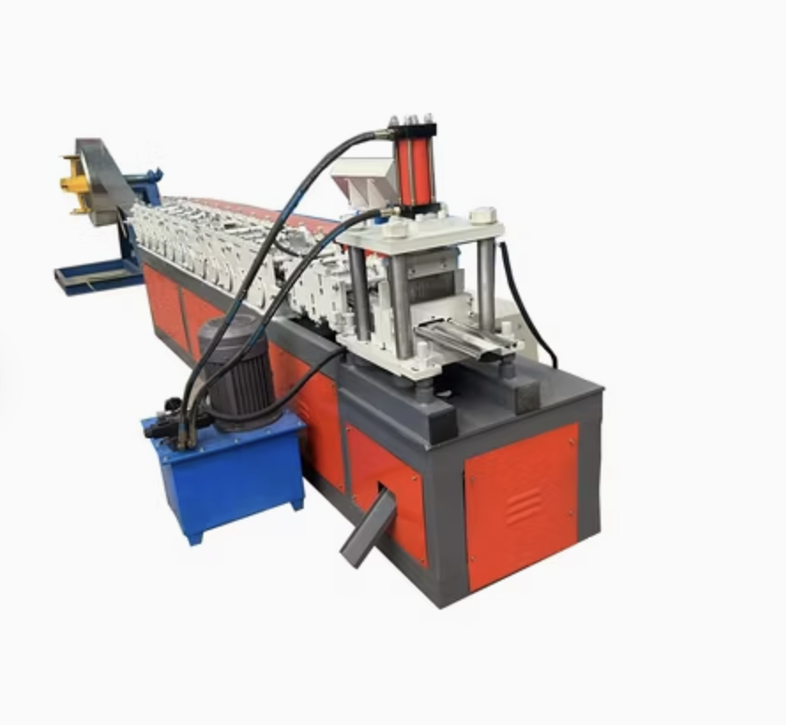To express an interest in this machine please submit the form below.

Not Sure What Machine You Need?
Select Your Profile, We'll Match It
Choose your desired profile drawing, and let Machine Matcher connect you with the best roll forming machine tailored to your needs.
Browse Profiles
A garage door roll forming machine is an essential piece of equipment for manufacturers producing high-quality, durable garage door panels and tracks. These machines streamline production, ensuring precision, consistency, and efficiency. With the growing demand for residential and commercial garage doors in the USA, this equipment has become a vital investment for manufacturers.
A Garage Door Roll Forming Machine is designed to fabricate the metal panels and tracks used in garage doors. The machine works by feeding a coil of steel or aluminum into a series of precisely aligned rollers. As the material passes through, it is gradually shaped into the desired profile, such as panels, frames, or tracks.
| Component | Details |
|---|---|
| Roller Material | GCr15 steel, heat-treated for enhanced hardness and wear resistance. |
| Frame Structure | Heavy-duty steel construction with advanced welding for stability and durability. |
| Motor Power | 7.5 kW to 15 kW, depending on machine size and production capacity. |
| Hydraulic Cutting System | Hydraulic pump with 5.5 kW power, designed for precise and burr-free cutting. |
| Machine Speed | 10–20 meters per minute (customizable based on requirements). |
| Control System | PLC system with touch-screen interface, supporting multiple languages including English. |
| Panel Width | Adjustable, supporting widths from 12 inches to 36 inches. |
| Material Thickness | 0.5 mm to 1.5 mm (customizable). |
| Embossing Capability | Optional feature for textured or decorative finishes on panels. |
| Power Supply | 220V/60Hz or 440V/60Hz, suitable for US industrial standards. |
| Safety Features | Emergency stop buttons, safety enclosures, and interlock systems to protect operators. |
The machine setup process involves:
A1: The machine is designed to process steel, aluminum, or galvanized coils with thicknesses ranging from 0.5 mm to 1.5 mm.
A2: Yes, the machine can be customized to produce specific profiles based on your garage door design requirements.
A3: Initial setup can take 1–2 days, depending on the machine size and site conditions. Subsequent profile changes require minimal adjustments.
A4: Yes, most suppliers provide technical support, including installation assistance, training, and ongoing maintenance services.
A5: With proper maintenance, a garage door roll forming machine can last 10–15 years or more.
A6: Purchase machines that include safety enclosures, emergency stops, and interlocks, and ensure they meet OSHA (Occupational Safety and Health Administration) regulations.
Copyright 2026 © Machine Matcher.